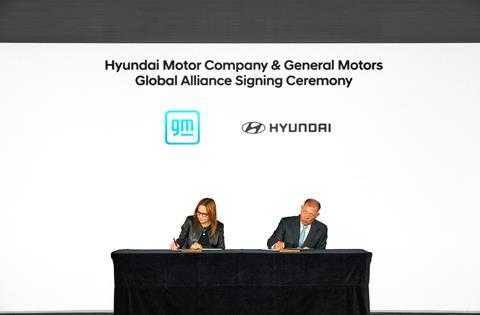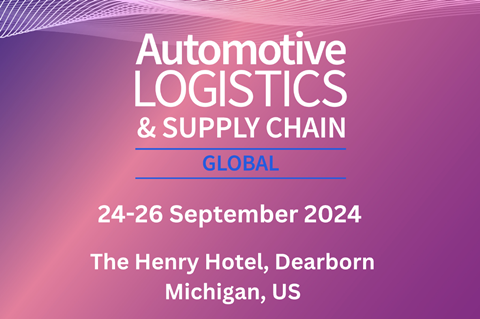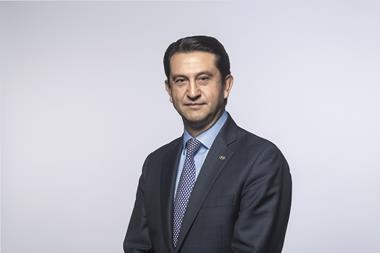GM has signed an agreement with Hyundai Motor to collaborate on vehicle and engine production, including electric and hydrogen technologies. The two carmakers said they will also review combined sourcing of battery materials and steel.
The carmakers said that working together and leveraging their respective scale and strengths would enable them to reduce costs, and bring a wider range of vehicles and technologies to customers faster.

“GM and Hyundai have complementary strengths and talented teams,” said GM’s CEO Mary Barra. “Our goal is to unlock the scale and creativity of both companies to deliver even more competitive vehicles to customers faster and more efficiently.”
Barra signed the agreement with Hyundai Motor Group executive chair Euisun Chung.
“This partnership will enable Hyundai Motor and GM to evaluate opportunities to enhance competitiveness in key markets and vehicle segments, as well as drive cost efficiencies and provide stronger customer value through our combined expertise and innovative technologies,” said Chung.
At the end of last month GM also finalised a joint venture deal with Samsung SDI for the production and supply of batteries for GM’s forthcoming electric vehicles (EVs). The two companies are investing $3.5 billion to build a 27GWh battery cell manufacturing plant on a 275-hectare site in New Carlisle, Indiana. Output is planned to start in 2027.
At last year’s Automotive Logistics and Supply Chain Global conference in Detroit David Leich, executive director of global supply chain at GM, said carmakers were looking at the transition to electric vehicles (EVs), which is introducing a new specialised supply chain for inbound, outbound and service parts logistics. To make the transition successful there needs to be more collaboration and communication between the sectors, said Leich.
“There are dedicated resources that are now going into supplying this new side of production,” Leich. “We do have dedicated primary and spot capacity, but it’s a challenge because this capacity is specialised and comes at a higher price.”
Leich said that the fast-changing transition to EVs means there needs to be more transparency and communication within the new supply chain.

























![Global[1]](https://d3n5uof8vony13.cloudfront.net/Pictures/web/a/d/s/global1_726550.svgz)















No comments yet